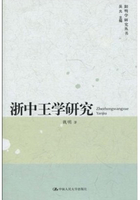Of late years, however, some authors, and among the rest Cardinal Bellarmine, without seeming to dread the imputation of heresy, have stoutly maintained, against all this array of popes and councils, that the writings of Honorius are free from the error which had been ascribed to them; "because," says the cardinal, "general councils being liable to err in questions of fact, we have the best grounds for asserting the sixth council was mistaken with regard to the fact now under consideration; and that, misconceiving the sense of the Letters of Honorius, it has placed this pope most unjustly in the rank of heretics." Observe, then, I pray you, father, that a man is not heretical for saying that Pope Honorius was not a heretic; even though a great many popes and councils, after examining his writings, should have declared that he was so.I now come to the question before us, and shall allow you to state your case as favourably as you can.What will you then say, father, in order to stamp your opponents as heretics? That "Pope Innocent X has declared that the error of the five propositions is to be found in Jansenius?" I grant you that; what inference do you draw from it? That "it is heretical to deny that the error of the five propositions is to be found in Jansenius?" How so, father? Have we not here a question of fact exactly similar to the preceding examples? The Pope has declared that the error of the five propositions is contained in Jansenius, in the same way as his predecessors decided that the errors of the Nestorians and the Monothelites polluted the pages of Theodoret and Honorius.In the latter case, your writers hesitate not to say that, while they condemn the heresies, they do not allow that these authors actually maintained them; and, in like manner, your opponents now say that they condemn the five propositions, but cannot admit that Jansenius has taught them.Truly, the two cases are as like as they could well be; and, if there be any disparity between them, it is easy to see how far it must go in favour of the present question, by a comparison of many particular circumstances, which as they are self-evident, I do not specify.How comes it to pass, then, that when placed in precisely the same predicament, your friends are Catholics and your opponents heretics? On what strange principle of exception do you deprive the latter of a liberty which you freely award to all the rest of the faithful? What answer will you make to this, father? Will you say, "The pope has confirmed his constitution by a brief." To this I would reply, that two general councils and two popes confirmed the condemnation of the letters of Honorius.But what argument do you found upon the language of that brief, in which all that the Pope says is that "he has condemned the doctrine of Jansenius in these five propositions"? What does that add to the constitution, or what more can you infer from it? Nothing, certainly, except that as the sixth council condemned the doctrine of Honorius, in the belief that it was the same with that of the Monothelites, so the Pope has said that he has condemned the doctrine of Jansenius in these five propositions, because he was led to suppose it was the same with that of the five propositions.And how could he do otherwise than suppose it? Your Society published nothing else; and you yourself, father, who have asserted that the said propositions were in that author "word for word," happened to be in Rome (for I know all your motions) at the time when the censure was passed.Was he to distrust the sincerity or the competence of so many grave ministers of religion? And how could he help being convinced of the fact, after the assurance which you had given him that the propositions were in that author "word for word"? It is evident, therefore, that in the event of its being found that Jansenius has not supported these doctrines, it would be wrong to say, as your writers have done in the cases before mentioned, that the Pope has deceived himself in this point of fact, which it is painful and offensive to publish at any time; the proper phrase is that you have deceived the Pope, which, as you are now pretty well known, will create no scandal.Determined, however, to have a heresy made out, let it cost what it may, you have attempted, by the following manoeuvre, to shift the question from the point of fact, and make it bear upon a point of faith."The Pope," say you, "declares that he has condemned the doctrine of Jansenius in these five propositions; therefore it is essential to the faith to hold that the doctrine of Jansenius touching these five propositions is heretical, let it be what it may." Here is a strange point of faith, that a doctrine is heretical be what it may.What! if Jansenius should happen to maintain that "we are capable of resisting internal grace" and that "it is false to say that Jesus Christ died for the elect only," would this doctrine be condemned just because it is his doctrine? Will the proposition, that "man has a freedom of will to do good or evil," be true when found in the Pope's constitution, and false when discovered in Jansenius? By what fatality must he be reduced to such a predicament, that truth, when admitted into his book, becomes heresy? You must confess, then, that he is only heretical on the supposition that he is friendly to the errors condemned, seeing that the constitution of the Pope is the rule which we must apply to Jansenius, to judge if his character answer the description there given of him; and, accordingly, the question, "Is his doctrine heretical?"must be resolved by another question of fact, "Does it correspond to the natural sense of these propositions?" as it must necessarily be heretical if it does correspond to that sense, and must necessarily be orthodox if it be of an opposite character.For, in one word, since, according to the Pope and the bishops, "the propositions are condemned in their proper and natural sense," they cannot possibly be condemned in the sense of Jansenius, except on the understanding that the sense of Jansenius is the same with the proper and natural sense of these propositions; and this I maintain to be purely a question of fact.The question, then, still rests upon the point of fact, and cannot possibly be tortured into one affecting the faith.
同类推荐
The History of England from the Accession
本书为公版书,为不受著作权法限制的作家、艺术家及其它人士发布的作品,供广大读者阅读交流。汇聚授权电子版权。
热门推荐
追妻无门:女boss不好惹
青涩蜕变,如今她是能独当一面的女boss,爱了冷泽聿七年,也同样花了七年时间去忘记他。以为是陌路,他突然向他表白,扬言要娶她,她只当他是脑子抽风,他的殷勤她也全都无视。他帮她查她父母的死因,赶走身边情敌,解释当初拒绝她的告别,和故意对她冷漠都是无奈之举。突然爆出她父母的死居然和冷家有丝毫联系,还莫名跳出个公爵未婚夫,扬言要与她履行婚约。峰回路转,破镜还能重圆吗? PS:我又开新文了,每逢假期必书荒,新文《有你的世界遇到爱》,喜欢我的文的朋友可以来看看,这是重生类现言,对这个题材感兴趣的一定要收藏起来。浙中王学研究(阳明学研究丛书)
本书的宗旨,是要在前人研究的基础上,通过对浙江学术思想的形成土壤、发展源流以及浙中王门学派形成、演变过程的考察,诠释其话语结构和致思趣向,并按照思想史演进的内在逻辑,展现明代心学丰富多彩的思想资源与形成机制,如三教合流、讲会运动、平民教育、宗法社会等。进而通过比较浙中王门各家之异同,揭示诸学者互为对象、互动共进、你中有我、我中有你、取长补短、标新立异的思想特征,以多层次、多视角地展开对浙中王学重要传人的梳理与考量。当暗黑系心理医生爱上你
一个心理医生和帝都阔少的故事。一个灵魂澄澈的男孩,一个情不由己的女人,一段飞蛾扑火的故事。绝色的是许知,不是李轻。偏偏李轻是个颜狗,于是……李轻从一开始就警觉地要离许知远点,没离开。李轻从一开始就知道不能爱上许知,没做到。病娇文。另一本书完结后再来填坑。追妻无门:女boss不好惹
青涩蜕变,如今她是能独当一面的女boss,爱了冷泽聿七年,也同样花了七年时间去忘记他。以为是陌路,他突然向他表白,扬言要娶她,她只当他是脑子抽风,他的殷勤她也全都无视。他帮她查她父母的死因,赶走身边情敌,解释当初拒绝她的告别,和故意对她冷漠都是无奈之举。突然爆出她父母的死居然和冷家有丝毫联系,还莫名跳出个公爵未婚夫,扬言要与她履行婚约。峰回路转,破镜还能重圆吗? PS:我又开新文了,每逢假期必书荒,新文《有你的世界遇到爱》,喜欢我的文的朋友可以来看看,这是重生类现言,对这个题材感兴趣的一定要收藏起来。














